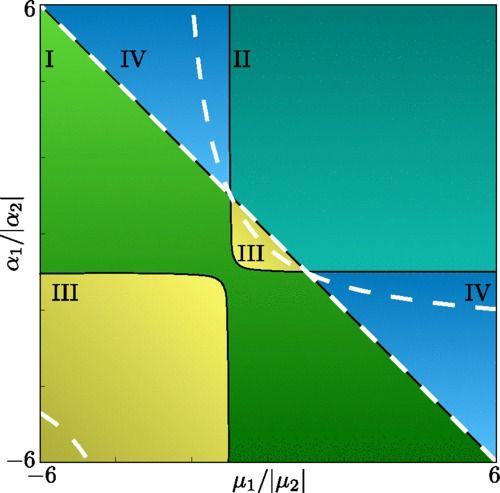People with cancer show no serious side effects after treatment with gene-edited immune cells.



Bad news.
The US Patent and Trademark Office (USPTO) has ruled that artificial intelligence systems cannot be credited as an inventor in a patent, the agency announced earlier this week. The decision came in response to two patents — one for a food container and the other for a flashing light — that were created by an AI system called DABUS.
Among the USPTO’s arguments is the fact that US patent law repeatedly refers to inventors using humanlike terms such as “whoever” and pronouns like “himself” and “herself.” The group behind the applications had argued that the law’s references to an inventor as an “individual” could be applied to a machine, but the USPTO said this interpretation was too broad. “Under current law, only natural persons may be named as an inventor in a patent application,” the agency concluded.

Love it or hate it, Starlink might be the biggest space undertaking ever once completed. The combined mass of the Starlink satellite constellation exceeds any prior space endeavor. The SpaceX network provides global satellite Internet access will weigh in more than any other prior space program. The constellation consisting of thousands of mass-produced small satellites in low Earth orbit adds up quickly. Each Falcon 9 launch gets packed full of sixty Starlink satellites. The satellites neatly fit in both size and mass limitations of the Falcon 9.
In 2018, The Federal Communications Commission granted SpaceX approval to launch up to 4,425 low-Earth-orbit satellites at several different altitudes between 1,110km to 1,325km. The following year, the FCC approved a license modification to cut the orbital altitude in half for 1,584 of those satellites. The lower altitude for the Starlink satellites reduces the latency of the Starlink. Yeah initial Starlink will be nearly the mass of the ISS.
| Name | Kg | Qty | Total Kg |
| Starlink | 260 | 1 | 260 |
| Starlink launch | 260 | 60 | 15,600 |
| Initial Starlink | 260 | 1,584 | 411,840 |
| ISS | 419,725 | 1 | 419,725 |
| Partial Starlink | 260 | 1,614 | 419,725 |
| Starlink full thrust | 260 | 4,425 | 1,150,500 |
| Big freak’n Starlink | 260 | 12,000 | 3,120,000 |
An exact solution of the Einstein—Maxwell equations yields a general relativistic picture of the tachyonic phenomenon, suggesting a hypothesis on the tachyon creation. The hypothesis says that the tachyon is produced when a neutral and very heavy (over 75 GeV/c^2) subatomic particle is placed in electric and magnetic fields that are perpendicular, very strong (over 6.9 × 1017 esu/cm^2 or oersted), and the squared ratio of their strength lies in the interval (1,5]. Such conditions can occur when nonpositive subatomic particles of high energy strike atomic nuclei other than the proton. The kinematical relations for the produced tachyon are given. Previous searches for tachyons in air showers and some possible causes of their negative results are discussed.

Bochum cosmologists headed by Professor Hendrik Hildebrandt have gained new insights into the density and structure of matter in the universe. Several years ago, Hildebrandt had already been involved in a research consortium that had pointed out discrepancies in the data between different groups. The values determined for matter density and structure differed depending on the measurement method. A new analysis, which included additional infrared data, made the differences stand out even more. They could indicate that this is the flaw in the Standard Model of Cosmology.
Rubin, the science magazine of Ruhr-Universität Bochum, has published a report on Hendrik Hildebrandt’s research. The latest analysis of the research consortium, called Kilo-Degree Survey, was published in the journal Astronomy and Astrophysics in January 2020.

We study the nonequilibrium interaction of two isotropic chemically active particles taking into account the exact near-field chemical interactions as well as hydrodynamic interactions. We identify regions in the parameter space wherein the dynamical system describing the two particles can have a fixed point—a phenomenon that cannot be captured under the far-field approximation. We find that, due to near-field effects, the particles may reach a stable equilibrium at a nonzero gap size or make a complex that can dissociate in the presence of sufficiently strong noise. We explicitly show that the near-field effects originate from a self-generated neighbor-reflected chemical gradient, similar to interactions of a self-propelling phoretic particle and a flat substrate.
Have you heard about an asteroid close-approach happening on April 29? Asteroid 1998 OR2 poses no threat to our planet, but we can still learn a lot by studying it. Don’t miss a special Planetary Defense episode of NASA Science Live on Monday, April 27 at 3:00 p.m. EDT to learn how we find, track and monitor asteroids and near-Earth Objects.

The WHO just removed pre made criticism of Gilead’s drug from it’s website. It quoted a flawed Chinese study on the drug, yet somehow the criticism was posted on it’s website. The criticism of the drug has since been removed as data from the Chicago study had not even yet been released, and they recieved strong criticism for it. A group of influential people and organizations have been criticizing every treatment, while at the same time proposing vaccines that do not even exist. Every doctor signs an oath, and you can not just let people die for vested interests, as it is my belief that is what is happening. I could be wrong, so prove me wrong by stopping the deaths with effetive treatment and less disinformation that supports vested interests.
A top World Health Organization official declined comment on Wednesday on reports that Gilead Science’s remdesivir could help treat COVID-19, the respiratory disease caused by the novel coronavirus, but said that further data was needed.
Billionaire Rocket Scientist SpaceX CEO Elon Musk: “Give people back their goddamn freedom.”
Elon Musk called the shelter-in-place orders in the San Francisco Bay Area and throughout the US “fascist” actions that are stripping people of their freedom on a Tesla earnings call on Wednesday. Musk’s comments come after a torrent of criticism for remarks he made late Tuesday night on Twitter, in which the billionaire CEO echoed President Trump by writing in all caps, “Free America Now.”
The rant began after Musk said, “We are a bit worried about not being able to resume production in the Bay Area, and that should be identified as a serious risk.” Six Bay Area counties jointly extended the shelter-in-place orders affecting San Francisco, Fremont, and other cities through May 31st, with only some minor relaxing of restrictions.
